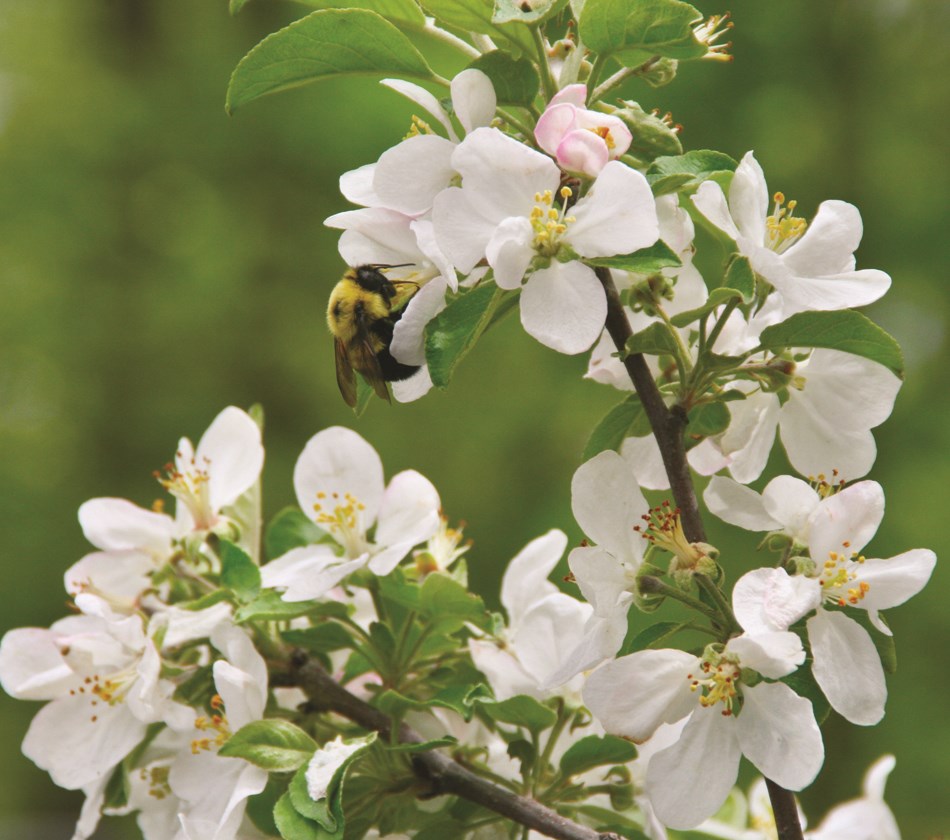Honeybees are humble insects that benefit the environment in various ways. Unfortunately, many people lump bees in with wasps and other seemingly “harmful” insects and do whatever is necessary to remove them from their properties. But it’s important to be mindful of the beneficial roles bees play and to take steps to maintain healthy habitats so they can thrive.
Bees are one of the most important pollinators of flowers, crops and fruit trees. These small insects can make or break entire food supplies. They also pollinate clover and alfalfa that provide feed for cattle. Some experts place the economic value of bees at roughly $15 billion per year.
According to the conservation organization Save the Bees, recent surveys suggest close to a 99 percent loss in bees over the last 150 years, primarily due to increasing agricultural intensification.
To combat this sharp decline in bee populations, people from all walks of life can do their part to help bees thrive once again. And by helping bees, individuals also may indirectly help other beneficial pollinating insects, such as butterflies.
Be aware of the landscape
Not all bees build the wax or paper structures associated with traditional beehives. Those hives may not be readily visible even for bees that do build them. Wood-nesting bees can nest in twigs or dead trees. Bees may nest underground or use the burrows abandoned by small rodents. Before excavating or disturbing more remote areas of the yard, check to see if it is a habitat for bees. Leave some natural areas of the landscape untouched and do not remove twigs, mounds of dirt and native flowers to attract more bees.
Plant native flowers and flowering trees
Offer bees plenty of flowering choices so they’ll be happy to come investigate. Native flowers are best because they will be most familiar. Try to plant an array that will flower at different times of the year. Simple flowers will offer more readily available access to pollen than hybrid or exotic varieties bred to produce mounding petals.
Leave swatches of natural lawn
Instead of properties featuring an entire manicured lawn, set aside an area that is encouraged to overgrow with dandelions and clovers, which are good nectar sources for many bees.
Support local beekeepers
If you find a honey bee swarm on your property, contact a local beekeeper who may be able to safely collect and relocate that swarm so it will produce honey and provide the additional benefits associated with healthy bees. People can also support beekeepers’ work by purchasing local honey. Not only does it keep jobs in the area, but some research also suggests that consuming local honey can help reduce seasonal allergies. WebMD says the practice is based on immunotherapy. Local honey contains traces of local pollen that may be responsible for seasonal allergies. Repeated exposure to small doses of this pollen might help bodies develop natural immunities.
Bees can be quite beneficial to have around, and it can be an enjoyable venture to customize landscapes to support the propagation of wild bees.




